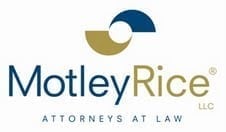Jury Finds Arab Bank PLC Liable for Financing Terrorist Activity
September 22, 2014MT. PLEASANT, SC – A Brooklyn, N.Y., jury found Jordan-based Arab Bank plc. liable for financing terrorist activity, including funneling financial support to top Hamas leaders and to the families of suicide bombers. This case, Linde et al. v. Arab Bank PLC, marked the first time that a financial institution has been brought to trial under the Anti-Terrorism Act (ATA).
The eleven member jury agreed with plaintiffs’ claims that Arab Bank knowingly and systematically provided financial support to the leadership of Hamas and to the families of terrorist operatives including suicide bombers. Motley Rice LLC represents nearly 20 U.S. citizens injured in suicide bombings and other terrorist attacks carried out by Hamas in Israel and the Palestinian Territories, in addition to dozens of other American victims of terrorism carried out by other groups, such as the Palestinian Islamic Jihad, and thousands of foreign plaintiffs under the Alien Tort Statute also pursuing claims against Arab Bank.
“We are so pleased that these plaintiffs have achieved justice after this brutal ten-year battle. Today’s verdict is a testament to their fortitude and determination,” said Motley Rice anti-terrorism and human rights attorney Michael Elsner, who represents plaintiffs in the case. “The late Motley Rice co-founder Ron Motley filed this action back in 2004. His passion for justice and his trust in jury trials was realized today. We all have a role to play in preventing terrorism in whatever sector we operate. It is now clearer than ever that this obligation extends to banks.”
“I strongly believe that this jury’s verdict marks a critical point in history and hopefully a turning point in the war against terrorism, especially now that we are faced with the rise of more terrorists,” stated Motley Rice client Joshua Faudem, who was injured in the Mike’s Place suicide attack bombing in Tel Aviv, Israel, on April 30, 2003. “By cutting off the financial support for terrorism, we are able to hurt terrorists the most. Without funding, they are not able to have the means to purchase equipment, bombs or arms, gain access to carry out violent acts or to create an elaborate system of support. I am proud to be part of this historic case.”
“This is a historic day for the banking industry. This jury’s verdict should be a wake-up call to all financial institutions that they cannot hide behind software systems and internal policies as an excuse to knowingly permit the financing of terrorism,” Elsner added. “Money is the fuel for terror and our only hope in preventing terrorism is shutting off the financial pipeline. Today’s verdict is a victory against terrorists and their networks of support.”
On Friday, September 19, one day after the trial was sent to the jury for consideration, plaintiffs’ attorneys received a response to their FOIA request issued to the State Department in 2008. The heavily redacted response contains a State Department action memorandum related to the Saudi Committee Program in Support of the Al Quds Intifada. The document states that: “In 2003, the United States provided evidence to Saudi authorities that the Saudi al Quds Intifadah Committee, founded in October 2000, was forwarding millions of dollars in funds to the families of Palestinians engaged in terrorist activities, including those of suicide bombers.” This information would have been a critical piece of evidence that plaintiffs could have presented to the jury to counter the Bank’s defense that the United States government approved of the program—a defense the State Department knew Arab Bank was making. The State Department’s withholding of the information until after the close of evidence is troubling given its pattern of support to foreign interests above those of U.S. victims of terrorism. Fortunately, the jury followed the evidence in reaching the right decision regardless of the State Department’s efforts.
The jury heard arguments from both sides during the six-week trial before U.S. District Judge Brian Cogan in the Eastern District of New York. Their decision comes after deliberating for two days. This verdict allows the case to proceed to another trial by jury, which will decide appropriate damages for the plaintiffs.
Motley Rice attorneys Michael Elsner, John Eubanks and Jodi Westbrook Flowers were joined on the trial team by Gary M. Osen of Osen LLC, Sayles Werbner PC and Tab Turner of Turner & Associates PA. The case is Linde et al. v. Arab Bank PLC, No. 1:04-cv-02799 (E.D.N.Y.).
About Motley Rice LLC
Motley Rice is one of the nation’s largest plaintiffs’ litigation firms. With a tradition of representing those whose rights have been violated, Motley Rice attorneys gained recognition for their pioneering asbestos lawsuits, their work with the State Attorneys General in the landmark litigation against Big Tobacco and their representation of 9/11 families in the ongoing lawsuit against terrorist financiers. The firm continues to handle complex litigation in numerous areas, including GM ignition switch defects, securities fraud, antitrust, consumer protection, mesothelioma, environmental contamination; prescription and over-the-counter drugs such as Lipitor®, Pradaxa® and Tylenol®; other medical devices; human rights; aviation disasters; and wrongful death. Motley Rice is headquartered in Mt. Pleasant, S.C., and has additional offices in New York; Connecticut; Louisiana; Washington, D.C.; Rhode Island and West Virginia. For more information, contact Motley Rice member Michael Elsner (NY, SC, VA) at 1.800.768.4026 or visit www.motleyrice.com. Connect with us on Facebook, LinkedIn, Google+ and Twitter.













